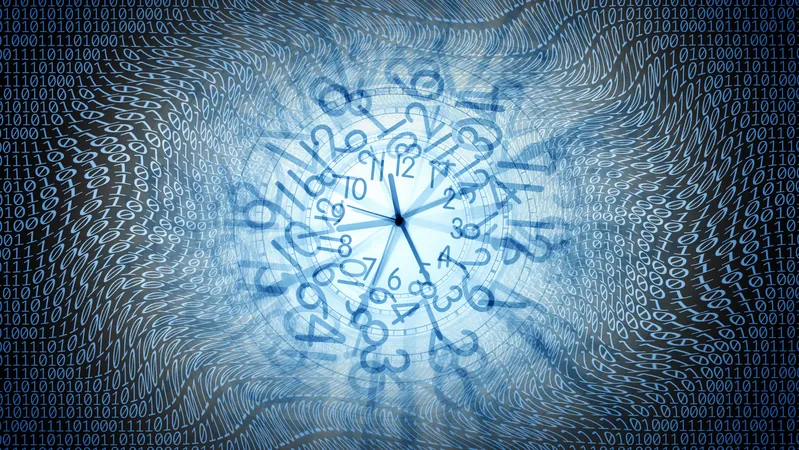
AI’s Time-Telling Failures: A Wake-Up Call for Artificial Intelligence
2025-05-17
Author: Yu
AI Can't Tell Time: Shocking Study Exposes Major Flaws
A groundbreaking study has unveiled a startling truth about artificial intelligence (AI): despite its ability to compose essays, generate art, and code, it struggles with fundamental tasks like reading an analogue clock or figuring out what day a particular date falls on.
Presented at the 2025 International Conference on Learning Representations, the research highlights significant gaps in AI's capabilities. Researchers discovered that many AI models misinterpret clock hands and fail to perform basic date calculations, raising questions about their suitability for time-sensitive applications.
The Research Findings
Lead author Rohit Saxena from the University of Edinburgh stated, "Most people learn to tell time and use calendars at an early age, making AI’s shortcomings particularly alarming." He stressed the importance of addressing these flaws if AI is to be integrated into real-world tasks like scheduling and automation.
To investigate this phenomenon, researchers compiled a unique dataset of clock and calendar images, testing various advanced large language models (LLMs) including Meta's Llama 3.2-Vision and OpenAI's GPT-4o. Unfortunately, the results were dismal. These models only correctly identified the time displayed on clocks about 38.7% of the time and could figure out calendar dates a mere 26.3% of the time.
Lack of Spatial Reasoning Holds AI Back
Why such poor performance? Saxena suggests it's due to the AI's need for spatial reasoning. Reading a clock involves more than recognition; it requires interpreting angles and understanding designs like Roman numerals. AI may easily recognize a clock but struggles to decipher its information.
AI’s Arithmetic Misunderstanding
AI's challenges extend to arithmetic too. Even though traditional computers excel at math, LLMs don't process computations in the same way. Instead, they predict answers based on patterns they've seen. Thus, while they might occasionally get arithmetic questions right, their reasoning is inconsistent.
Lessons from the Study: Rethinking AI Training Practices
This research contributes to an increasing body of evidence that illustrates how AI and humans process information differently. AI excels with repetitive patterns but falters in generalizing or applying abstract reasoning.
Saxena emphasized, "What seems effortless for us can be extremely challenging for AI, and vice versa." He added that tasks involving logical thinking and spatial reasoning need more focused training data to help AI bridge the gap.
Caution Ahead: Human Supervision Still Essential
As AI continues to advance, the research serves as a reminder of the limitations inherent in these systems. Saxena cautioned, "AI is powerful, but when perception mixes with logic, rigorous testing and sometimes human oversight are crucial." This finding reinforces the need for careful integration of AI in critical applications.



 Brasil (PT)
Brasil (PT)
 Canada (EN)
Canada (EN)
 Chile (ES)
Chile (ES)
 Česko (CS)
Česko (CS)
 대한민국 (KO)
대한민국 (KO)
 España (ES)
España (ES)
 France (FR)
France (FR)
 Hong Kong (EN)
Hong Kong (EN)
 Italia (IT)
Italia (IT)
 日本 (JA)
日本 (JA)
 Magyarország (HU)
Magyarország (HU)
 Norge (NO)
Norge (NO)
 Polska (PL)
Polska (PL)
 Schweiz (DE)
Schweiz (DE)
 Singapore (EN)
Singapore (EN)
 Sverige (SV)
Sverige (SV)
 Suomi (FI)
Suomi (FI)
 Türkiye (TR)
Türkiye (TR)
 الإمارات العربية المتحدة (AR)
الإمارات العربية المتحدة (AR)